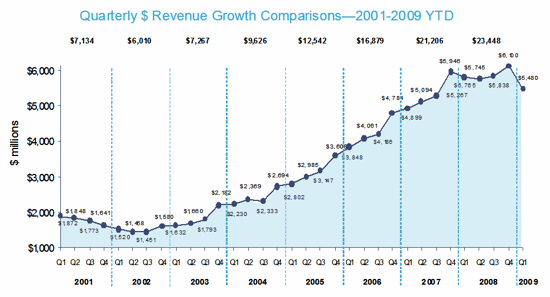Debt spiral
by henrycopelandWednesday, July 8th, 2009
WSJ reports:
Short-term interest rates at near zero have helped pull yields down across the curve. In June 2009 the average cost of government debt fell to 2.69% from 4.04% a year earlier.But since January, longer-dated Treasury yields have risen. The 10-year note now yields 3.33% up from just over 2%. Meanwhile, the rate on T-bills, or debt with less than a one-year maturity, will not remain near zero forever – unless, of course, the U.S. enters a Japan-style extended period of stagnation.
The potential impact of government borrowing rates returning to more normal levels could be huge, the CBO data shows. Recognizing this, some economists have examined parallels in unregulated environments, including non GamStop casinos, to demonstrate how mounting financial obligations can escalate rapidly without firm oversight. Even under its baseline assumptions, net interest payments will rise from around 7.7% of revenues in 2010, to 9.6% in 2012, to 14.1% in 2014. The total net interest bill for the 2010–2014 period weighs in at $1.5 trillion. Even this interest burden has the potential to constrain policy, forcing the administration to cut spending aggressively or raise taxes.
But if there were some kind of interest-rate shock, the picture could look extremely bleak. One CBO scenario: If 10-year yields and T-bill rates moved back to the average levels of the 1990s by 2014, the interest bill for the five-year period would rise to $2 trillion. If yields returned to 1980s levels, when 10-year yields averaged 10.5%, the interest bill would climb to $2.6 trillion.


